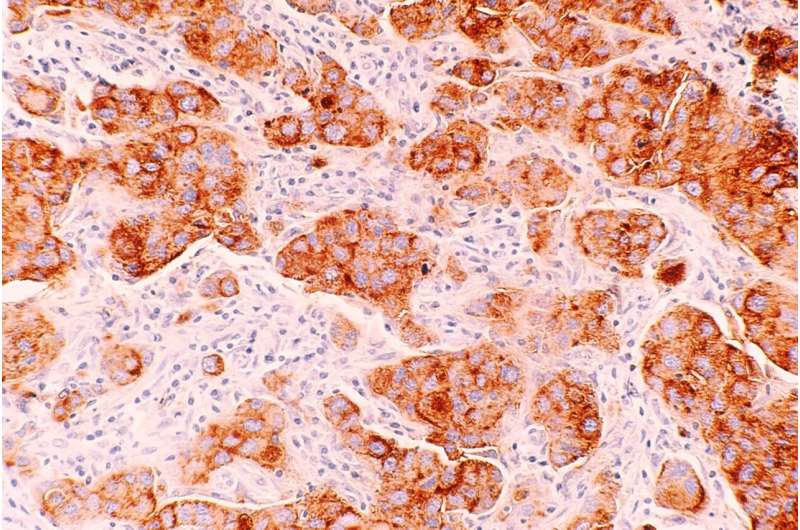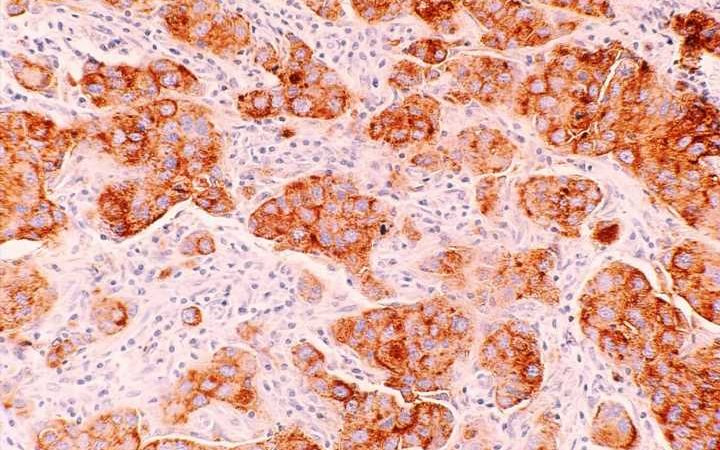
Scientists at VCU Massey Cancer Center discovered that the deletion of a specific protein creates a hostile environment for tumor cells and significantly subdues breast cancer growth and spread.
Breast cancer is the second most common cancer in women in the U.S., and the vast majority of deaths related to this disease occur after it has metastasized beyond the breast.
Preclinical experiments led by Sarah Spiegel, Ph.D., and recently published in Cancer Research determined that the elimination of a protein called sphingosine kinase 2 (SphK2) halted the progression of triple-negative breast cancer—a highly aggressive form of disease—and blocked its ability to spread to the lungs.
“Our findings indicate that SphK2 inhibitors could be considered as a multipronged treatment option to bolster clinical effectiveness in breast cancer,” said Spiegel, member of the Cancer Biology research program at Massey and professor and chair of the Department of Biochemistry and Molecular Biology at the VCU School of Medicine. “The inability to effectively predict, prevent and treat advanced breast cancer is a major problem in oncology care, and the development of additional effective targeted therapies is urgently required.”
Two-way communication between breast cancer cells and their tumor microenvironment (TME) directly affects disease progression and spread, resistance to cancer therapies and overall patient outcomes. As cancer grows, the TME is also constantly changing, necessitating a stronger understanding of the cellular and molecular functions that guide the interactions between tumors and their surrounding tissue.
SphK2 is responsible for the production of the lipid sphingosine-1-phosphate (S1P), a molecule that Spiegel originally discovered in the 1990s and has since been found to influence inflammation, cancer development and cardiovascular disease. Spiegel and her collaborators observed that deleting SphK2 completely reprogrammed the TME, decreased the presence of S1P and increased the accumulation of the p53 tumor suppressor gene.
“Targeting components of the TME—such as has already been observed with the clinical success of certain cancer immunotherapies—has stimulated a growing interest in understanding how the TME directly impacts tumor progression,” Spiegel said. “Our work suggests a new and different approach to harness the p53 network, which might pave the way for the development of a novel class of therapeutics targeting SphK2 and the microenvironment that interferes with breast cancer progression and metastasis.”
More information:
Cynthia Weigel et al, Sphingosine Kinase 2 in Stromal Fibroblasts Creates a Hospitable Tumor Microenvironment in Breast Cancer, Cancer Research (2022). DOI: 10.1158/0008-5472.CAN-22-1638
Journal information:
Cancer Research
Source: Read Full Article
